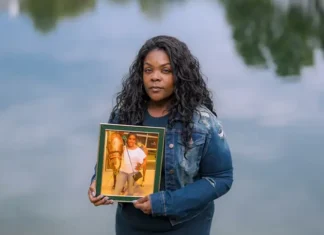
For years, advocates for equity in education have pushed to increase the number of Black male teachers. Rightfully so: though Black men represent just a fraction of the overwhelmingly female, mostly white K-12 teaching workforce, numerous studies confirm they have a positive impact on Black boys, who are more likely to fall through the cracks of the education system.
But a new study challenges the idea that simply adding more male teachers to the classroom will automatically help Black boys prosper.
Does Adding More Male Teachers to the Classroom Help? Maybe Not So Much
Researchers from the University of Albany found no evidence that male teachers improve boys’ academic or behavioral performance in the early grades.
“I’ve raised two boys, and so I was surprised, because I was not anticipating these types of effects,” Paul Morgan, one of the paper’s co-authors, says. A former UA professor, Morgan now teaches at Boston University’s School of Social Work.
While it did not solely focus on race, the results underscore “the complexity of gender dynamics in education” and suggest that policies “solely focused on increasing the number of male or female teachers are unlikely to substantially address the onset of gender disparities during elementary school,” according to the report.
The study, which has not been peer-reviewed, seems to contradict years of research that points to positive outcomes for Black boys who see someone who looks like them on the classroom whiteboard. Black male teachers have been linked to better test scores, higher graduation rates, lower disciplinary rates, and increased college attendance among Black boys in public education.
Black Male Teachers Are Not the “Be-All-End-All” for Educational Equity
Sharif El-Mekki, founder and CEO of the Center for Black Educator Development, says the study confirms Black male teachers aren’t the silver bullet for the problems Black boys face in K-12 education. Yet he worries the study could encourage people to draw the wrong conclusions and discount the importance of Black male teachers.
“It’s actually a dangerous proposition to think that Black men by themselves are a silver bullet,” says El-Mekki, whose organization’s mission aims to get more Back folks into the classroom. “It feeds into the truth of the magical Negro, [who] sprinkles pixie dust on something and fixes it.”
University of Albany researchers conducted the study by examining data from around 8,000 students from kindergarten through fifth grade, half of whom were girls and the other half were boys. About one-third of the young boys in the study in early grades reported having at least one male teacher in their lifetime, but not consistently.
The researchers then tracked the boys’ academic and behavioral performance across grades, comparing the results of students taught by male and female teachers.
“We found that, in general, students attending U.S. elementary schools do not benefit from being taught by same-gender teachers,” the researchers wrote.
How Can We Help Black Men Who Choose to Be Educators?
Black men who teach, El-Mekki says, cannot by themselves fix decades of systemic racism and institutional biases woven into public K-12 education — inequities that have led to learning gaps as well as disproportionate discipline, dropout, and achievement rates among Black boys in public schools. The answer, he says, is real community investment — injecting more financial and human resources aimed at Black male students — along with strengthening the Black male teacher pipeline and supporting them on the job.
At the same time, schools looking to add more Black male educators to their staff should consider how Black men experience school leadership, whether retention plans are tailored to their needs, and whether Black men working at their schools can fully be themselves.
El-Mekki said sometimes bringing in Black men into the classroom can be hard, comparing it to victims returning to the scene of a crime. Some Black men were traumatized by their experiences growing up in school; others have been told they can only be disciplinarians toward students. Still others don’t get the institutional support they need to flourish in their roles — and to help Black boys thrive.
“What about our educational ecosystem, can recognize that, acknowledge that, and address and support the healing as teachers lift, as they climb?” he says.















